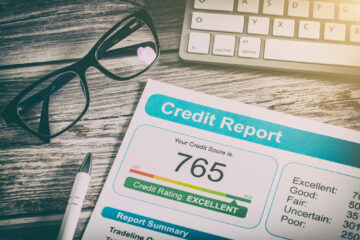Financial burdens can place a tremendous amount of pressure on you. If you’re struggling with paying off large amounts of debt, you’re not alone. The average debt in New Zealand is $79,000 per person.
The scariest part about the money owed is the debt to asset ratio. Most New Zealanders make considerably less money than they owe. In fact, the typical annual income in New Zealand rests right around $57,000, after taxes.
So how do you pay off your debt, when you owe more than you make? Knowing how to keep good credit when paying off excessive debt can feel like a hopeless guessing game. Every day you find yourself frantically scrambling to pay one bill, only to find another is coming due.
Are you ready to stop guessing, and take action to fix your financial future? Read on to learn about how to keep your credit healthy, even when you can’t make payments.
How to Keep Good Credit
Let’s start by looking at how institutions calculate your credit score. When you have a better idea of what financial institutions are looking at, you’ll understand how to create an effective plan of action.
First, you’ll want to know how to think about the debt you currently have. Do you consider one debt to be more important than another? Perhaps, you have a loan with a higher than usual interest rate.
It might be tempting to tackle the expensive interest loan first, in an attempt to set yourself up for success. The average household debt in New Zealand consists of a variety of debts such as mortgage loans, consumer loans, student loans, and credit cards.
With credit cards only being a part of the debt, many people try to focus on the loans, or instalment debt. They think, “If I can get rid of this expensive debt, I’ll then be able to tackle the other bills.” Yet, in order for you to improve, or maintain your credit score, you’ll need to address every payment equally.
Revolving Versus Installment Debts
Your credit doesn’t take into account what debt is costing you the most. Instead, they are only going to look at the bigger picture, your total debt accumulated.
Specifically, credit scores calculate two different kinds of debt. Here are the 2 kinds of debt credit scores take into account.
- Revolving
- Instalment
The instalment debt refers to things like mortgages, or short term loans. Typically instalment debt is seen as more expensive because it involves a large sum of money.
Yet, the first thing financial institutions are going to look at is your revolving debt. Revolving debt involves things like credit cards. The word revolving comes into play because as you spend, the credit limit fluctuates.
Your monthly balance changes from one month to the next. Instalment debt is different because the credit limit doesn’t fluctuate. Instead, the individual is paying regular amounts, or instalments, towards a loan.
Consolidating Credit Cards
Consolidating the cards can help bring down the monthly interest payments. Here are a few couple ways you can look into combing the credit card debt.
- Get a short term personal loan
- Borrow against your vehicle or house
Make sure the loan you’re getting has lower interest rates than your current credit card debt does. If the loan’s interest rates are lower, you can use it to pay off all of your credit card debt. Then you can focus on just repaying the loan.
Personal loans have lower interest rates, with more forgiving repayment grace periods. Another option you have is to get a balance transfer card. This card will be a new account you open, and transfer other lines of credit debt to.
Find a company that will allow you to transfer all or most of the debt. You’ll also want to make sure the card has no annual fees and has a low-interest rate. The interest on your credit card debt is an “annual percentage rate”, or APR.
Look for a company that can offer you a 0% APR option. Once the debt balance transfers, you’ll want to get to work right away paying off the debt with the lower interest rates. The 0% APR will most likely be temporary and probably won’t apply to new purchases.
Temporary Versus Longterm Financial Strain
Are you going through a temporary hardship, like loss of employment? If a recent major life change is making it hard to pay off debt, you might be able to work out a deal. Speak to your creditors and explain your temporary situation.
There’s a high probability they’ll be willing to work with you. Remember, their goal is to recover as much of the money they’re owed as possible. By being in communication with them, they might be able to offer you a temporary grace period for bills due.
If creditors aren’t able to make a deal with you, then you could still seek out a quick cash loan. Getting the loan, and paying off the upcoming bills, could keep your credit score from dropping.
Yet, what if your financial situation is more permanent? If you’re finding yourself struggling to pay down debt, and it’s not temporary, you might need outside help.
Finding a debt counselling agency can help you create an effective repayment plan. When you go to a financial advisor, they will look at your entire financial situation. They’ll be able to make recommendations so you don’t have to stay in debt forever.
Have an Emergency Kitty
Now you know more about how to keep good credit. As you move forward, remember to focus on your savings as well.
It’s easy to get caught up in repaying past debts and forget to save for future emergencies. Being unprepared for the next big life surprise could place you in more debt. Make sure you create an emergency kitty, for whenever you need a quick financial surplus of cash.
Keep the emergency funds in a financial institution, away from the house. This way it’ll be a lot less tempting for you to use it for other expenses.
At Loans24, we care about helping New Zealanders find reputable lenders. We understand that in life, unexpected financial obligations are going to happen.
If your credit is less than wonderful, it can be hard to find a personal loan. Yet, that doesn’t have to mean it’s hopeless. Check out our article about how people with poor credit can still borrow money.



Leave a Reply